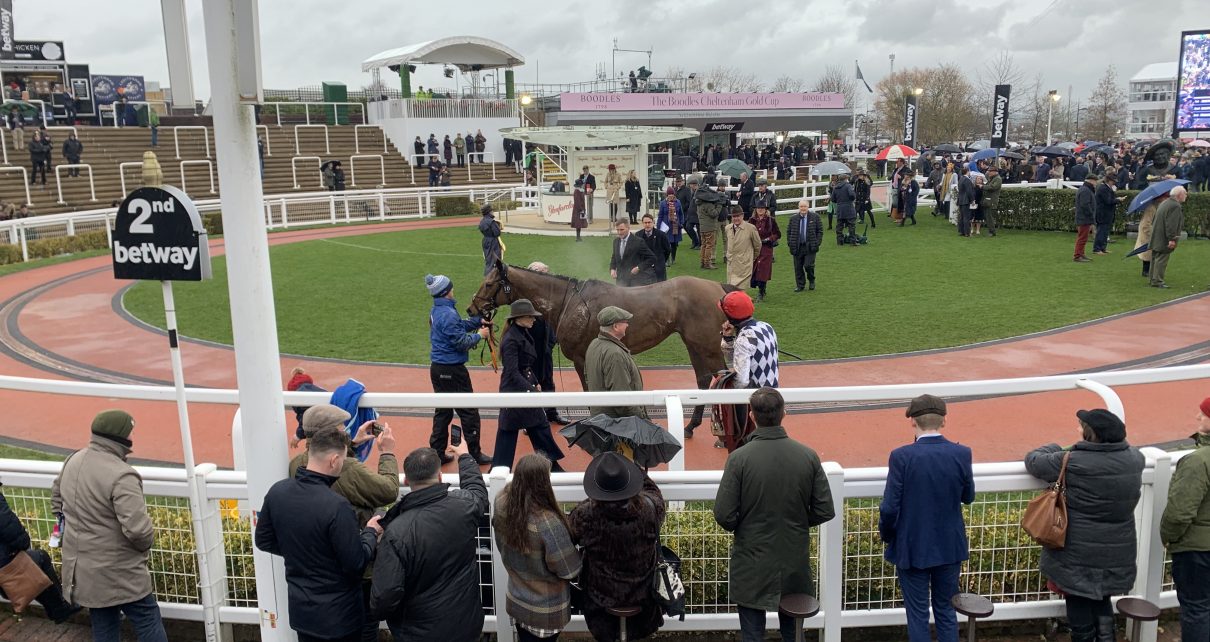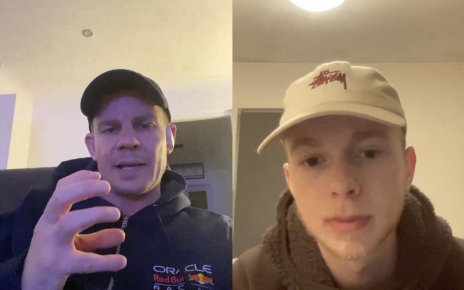Horses are animals. Not entertainment. The treatment of horses only goes so far to justify the pages of sad news we always have to read week in, week out.
And as each new edition of the annual Cheltenham Festival rolls around, the public is always divided in two over the age-old debate over the welfare of the horses that compete for the entertainment of the spectators.
Since the year 2000, 73 horses have lost their lives at Cheltenham Festival, with four horses dying in last year’s event.
This year, Animal Aid has confirmed that there has already been a death on the opening day, with Malinello suffering a fatal injury in the National Hunt Chase.
Due to these constant fatality numbers, Cheltenham High Street sees the arrival each year of the Gloucestershire Outreach Advocacy Team (GOAT), who protest for animal welfare when race week arrives.
One protester, who wishes to be known simply as ‘Gordy’, summarized what they are fighting for.
“We’re trying to raise awareness, mainly to the betting public, on the cruelty of horse racing.
“We see all the glamor and the glitz, even the media and the TV are making a big deal of how
amazing it is here, and people are having fun but we don’t look behind and see the victims of
the horse racing.”
The Cheltenham Festival is an extraordinary event for the Gloucestershire town, making an economic impact of £274 million in 2022, however, Gordy believes that the lives of these horses are too valuable to be sacrificed for this money.
“It depends on the value you put on life, doesn’t it, life is priceless!
“If people die in car racing, we wouldn’t call it ‘collateral damage’, would we? It does bring
in loads of money but that money would be spent elsewhere, it’s not just magical money that’s
made for horses or just racing.”
Most horse fatalities come from injuries during the race, in fact, 72% of horse racing deaths come from jump racing, so it is rarely down to the actual treatment of the horses behind the scenes.
Lois Davis, a stable worker in Liverpool, commented on her experience of what goes on behind the scenes, and what Cheltenham is implementing to ensure maximum safety.
“I think generally, they are treated very, very well!
“At Cheltenham this year, they’ve made a very big deal about using markers to guide the success of how quickly they can get to stricken horses on the track.
“This year, they’ve said that every single horse that may or may not get injured at the track will be attended to within a minute of the injury happening, you won’t get any better across any other equestrian sport.”
So, with two such opposing views, how do we find a compromise when it comes to these events?
For Gordy, he believes the answer is simple, and that is, “Don’t bring horses here!”
“There’s a million different ways that we could entertain people, we don’t
need to use animals for that sort of thing.”
In the eyes of Davis, the answer could be found in education and conversation.
“I think that we should be engaging in conversation with these people.
“They think it should all stop. I don’t think that’s helpful.”
It appears more and more unlikely that we will ever find a happy middle ground in this debate, and whilst I can confidently say I have been educated from my conversations with Davis, it will still take some time to adjust to a sport surrounding such cruelty.



